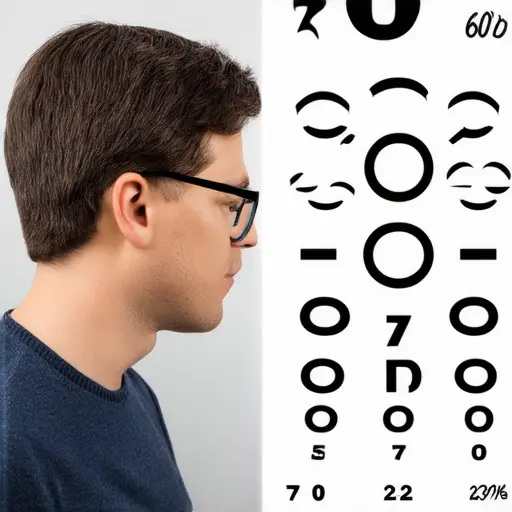A program so powerful, it’s designed to improve perfect eye health and give anyone who uses it crystal clear 20/20 vision in a matter of weeks.
Nearsightedness Improves With Age: What Science Says

Can Nearsightedness Actually Get Better With Age?
If you've been nearsighted since childhood, you might wonder: could my vision actually improve as I get older? It's a question that gives hope to anyone tired of squinting at street signs or constantly reaching for their glasses. Let's dive into what really happens to myopia as we age—separating hopeful possibilities from hard facts.
Myopia 101: Why Faraway Things Look Fuzzy
Nearsightedness isn't just about blurry road signs or struggling to recognize faces across a room. It happens when your eyeball grows slightly too long or your cornea gets extra curved, making light focus just short of your retina. While most people's myopia stabilizes by their 20s or 30s, our eyes keep changing throughout life in surprising ways.
The Aging Eye: More Than Just Reading Glasses
We all know about needing reading glasses after 40 (thanks, presbyopia!), but aging affects our eyes in multiple ways. Some lucky folks notice their distance vision sharpening over time—but is this wishful thinking or science-backed reality? Let's look at what researchers have discovered.
Do THIS 7-Second Trick Tonight, Restore Perfect 20/20 Vision Tomorrow

VisiSoothe - Vision Breakthrough
Watch free special videoWhat Science Says About Myopia and Aging
Turns out, there's some good news for the nearsighted crowd. While not everyone gets a free vision upgrade, studies show interesting patterns:
- Most people hit pause: For many, myopia stops progressing in early adulthood
- Some get a bonus: About 20% of people experience slight improvement
- Nature's trade-off: Presbyopia can make your myopia seem less severe when doing close-up work
Why Your Eyes Might Give You a Break
As we age, several natural changes can work in our favor:
- Your cornea might flatten just enough to help focus light better
- The lens becomes less flexible (causing presbyopia) but may compensate for myopia
- Changes in your eye's gel-like interior can sometimes improve light bending
Busting Common Myopia Myths
Let's clear up some persistent vision misconceptions:
The Natural Ultra Absorbable Dropper That Supports Strong Vision

Inside every drop of "EyeFortin" you'll find: A perfectly dosed proprietary blend of selected plants and minerals, carefully mixed to complement one another into a powerful vision supporting formula.
Learn more- "Myopia always worsens with age." Nope—many people stabilize or even improve slightly.
- "Needing readers means my nearsightedness is gone." Actually, you can have both simultaneously.
- "Only LASIK can fix my vision." Your eyes might make natural adjustments too.
How to Tell If Your Vision Is Improving
Wondering if you're one of the lucky ones? Watch for these clues:
- Your glasses feel too strong for distance
- You're squinting less at road signs or movie screens
- Night driving becomes slightly easier
Important note: Sudden vision changes always warrant an eye doctor visit—they could signal cataracts or other conditions masquerading as improved myopia.
The Flip Side: New Challenges That Come With Change
Even if your distance vision improves, aging eyes bring new considerations:
- You might need progressive lenses to handle both near and far vision
- Frequent prescription updates may be necessary
- Underlying conditions need to be ruled out
Keeping Your Eyes Healthy for the Long Haul
Want to give your vision its best shot at aging well? Try these tips:
- Load up on leafy greens, fish, and colorful fruits for eye-friendly nutrients
- Never skip your annual eye exam—they catch problems early
- Protect your peepers from UV rays and excessive screen glare
When Nature Needs a Helping Hand
If your myopia isn't improving naturally, modern options can help:
- LASIK and other vision correction surgeries
- Special overnight contact lenses that reshape your cornea
- Updated prescriptions tailored to your changing vision
The Bottom Line
While not guaranteed, many people do experience some myopia improvement with age—whether from natural eye changes, presbyopia's balancing effect, or other factors. The key is staying attentive to your vision changes and maintaining regular check-ups with your eye doctor. After all, your eyes are with you for life—it pays to take good care of them!
Have you noticed changes in your nearsightedness as you've gotten older? We'd love to hear about your experience in the comments!










